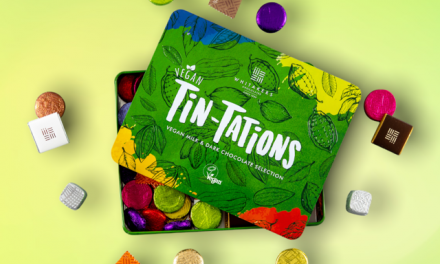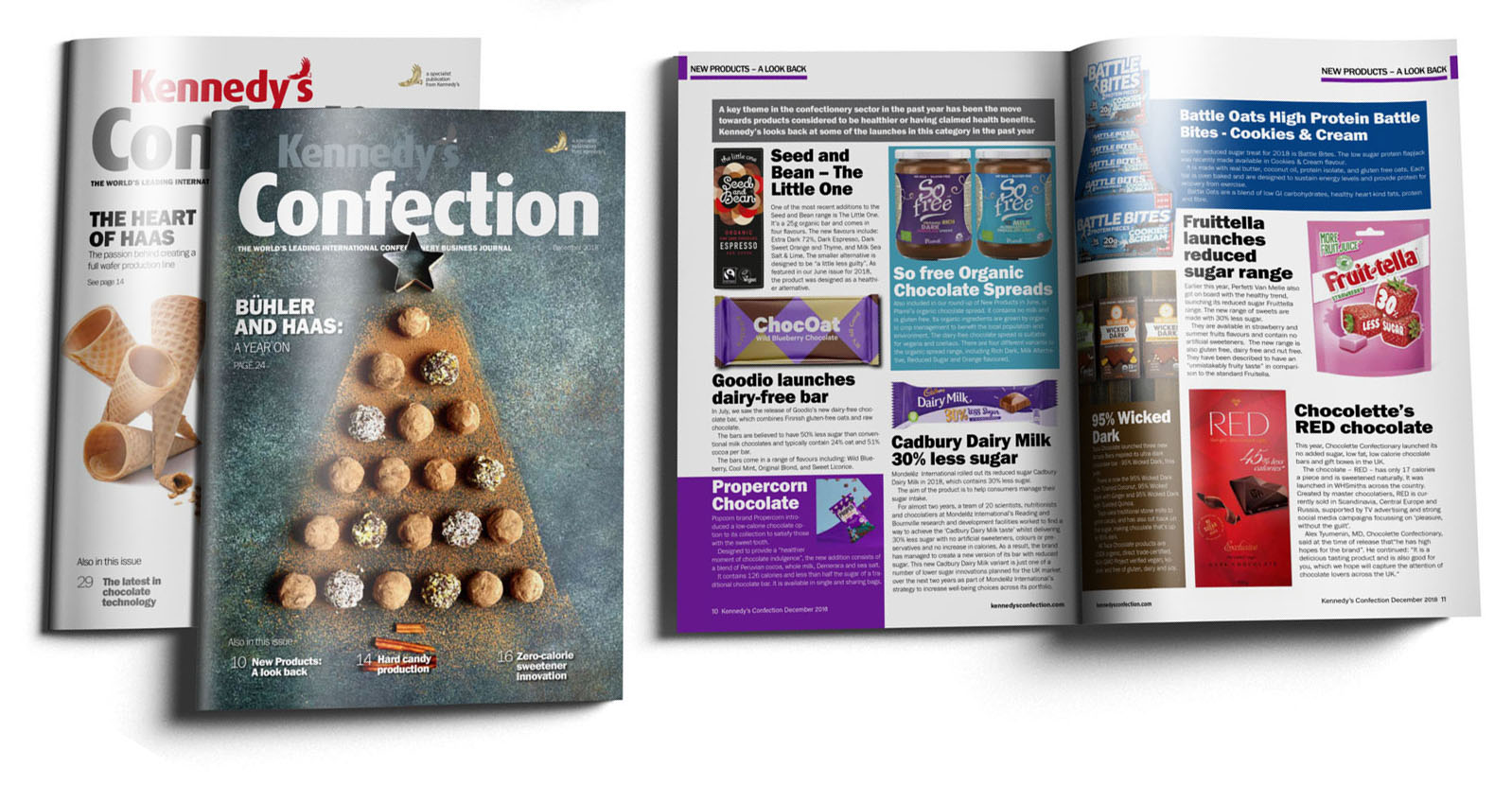How has the updated public list of CBD food products to novel food applications impacted the CBD gummy market and what does this mean for new innovations? Kiran Grewal reports.
Functional ingredients are growing in the food market due to the ever rising problems with health in the world population. Consumers are becoming overwhelmed with what is deemed ‘good’ for them as we are eating more processed foods than ever before and modern day health problems such as obesity, diabetes, high blood pressure and cholesterol are caused by poor diet. With greater access to information via the internet, the consumer has become its own wellness researcher and manufacturers claims on products may be misleading. As the cannabis market will continue to grow with the Global Cannabidiol (CBD) Market estimated to reach USD 47.22 billion by 2028, up from USD 4.9 billion in 2021, we will expect to see a huge increase of CBD products as supplements, and developing the process for active ingredients in products like gummies, is a big opportunity for the confectionery sector and nutraceutical markets.
On 31st March 2022, the UK’s Food Standards Agency (FSA) updated the public list of CBD food products linked to novel food applications, with 3,536 individual products either carrying a ‘Validated’ or ‘Awaiting Evidence’ status. Kennedy’s Confection catches up with Rebecca Sudworth, Director of Policy at the FSA to understand exactly what this might mean for confectionery manufacturers involved in the CBD gummy market.
Businesses have until 26 May 2022 to submit evidence that their products are linked to a credible application and were on the market before February 2020. Rebecca says: “As a regulator, the Food Standard Agency’s job is to protect consumers and make sure that food businesses are doing the right thing. We also have a responsibility to ensure that the way we regulate doesn’t unnecessarily hinder innovation or the growth of new markets. The challenge of getting this balance right has been evident in our on-going work to regulate the cannabidiol (CBD) market. This is a booming sector offering a huge range of CBD-infused products, but none have been through any formal safety assessment.
“While we are not aware of any significant safety concerns related to CBD, food products do need to be evaluated for safety as part of the novel foods authorisation process. To make sure that consumers can have confidence in these products, we have created a public list of those which are linked to a credible application for authorisation. If a product is not on the list, it should be removed from sale. We believe this offers a pragmatic and proportionate approach to regulation, allowing products that are moving towards consideration of full authorisation to stay on the market.
“We aim to update the public list twice before 30 June, with the first update due very shortly. After 30 June, no new products will be added. The only changes made after this will be to reflect changes to the status of products in our novel foods authorisation process,” Rebecca explains.
Only CBD food products which meet the following criteria can be added to the public list:
- they were on the market at the time of our announcement on CBD (13 February 2020)
- The FSA received an authorisation application for the products by 31 March 2021
- The FSA validated the application or agreed that it is sufficiently progressing towards validation
The FSA are continuing to accept CBD novel food applications, but products connected to these applications should not be put on sale until they have completed the process and secured authorisation.
UK approach to CBD products post-Brexit
Bud & Tender is primarily a research and development company that specialise in premium CBD cannabis oil – multi-award winning, approved and recommended by the Medical Cannabis Clinicians Society and on the Food Standards Agency Novel Foods list. Their Director, Charles Clowes commented: “The pandemic had a profound effect, not only did Bud & Tender receive a lot more enquiries and direct purchases – because people were really focusing in on their health – but we also supported and sold our proprietary CBD cannabis oil to individuals and businesses who wanted to incorporate it within a chocolate-based product where quality and effectiveness is paramount.”
When asked if the FSA regulation is a good thing, he answers: “Legislation and regulation that’s in the public’s best interest; that is fair and proportionate, creating an environment for the industry to thrive, supporting the UK’s economy and the environment will always be a good thing.”
Jade Proudman, CEO and founder of Savage Cabbage, provider of hemp, health and natural wellness products, agrees: “Regulation for quality and safety of any product we use is necessary, consumers need to feel confident that the products they are buying are of the best possible standards. The UK CBD Industry has undergone a long evaluation process and in my view is in the beginnings of legitimising an industry that has had to operate in a grey area for quite some time.”
Any products which do not appear on the FSA public list or are marked as ‘removed’ must be withdrawn from the market, meaning the related novel food application has been deemed unsuitable for progressing to authorisation. “I understand the need for regulation,” says Nimra Rana, Founder of Wxllnxss. “When I joined the market there was an obvious lack of traceable, clearly labelled products. All of our ingestible products are validated and published on the list. However with the new rules, there is uncertainty around developing new products, which may deter new sellers and smaller existing brands from excelling in the market. The FSA’s requirement of when the product was on the market is not a measurement of the quality of a product. Product development is key for the growth of an industry and from the way things are currently, the regulators are not encouraging that.”
The cannabinoid CBD is extracted from the hemp/cannabis plant with the majority of CBD and CBD related products imported from Europe, America and Asia so the legislation and regulation needs to evolve so that UK farmers can participate in supplying this functional ingredient, which in turn will help to support the domestic economy and environment.
On the 31st of January 2020 (Brexit) the UK stopped being a member of the European Union (EU), 17.4m people voted to leave the EU. On the 13th February 2020 the Food Standards Agency (FSA) adopted the EU’s approach to the classification of CBD as a Novel Food and announced that all CBD products on the UK market must have a novel food application through the validation phase of the review process before 31 March 2021.
As the UK was now in the transition period there was and still is the opportunity for the UK to do things differently and better. The danger is that a monopoly of supply is created which would be against UK competition laws and regulations.
“Foods and drinks with functional ingredients and especially those with a confectionery element will only continue to grow,” predicts Charles. “Quality, price and the fact that an ingredient is plant-based only adds to the desirability, but how ‘healthy’ the product is must become more transparent as, without a doubt, there are times for products that deliver functional performance and times for a little bit of luxury using some ingredients that might not be considered as ‘healthy’ as others.
“In my honest opinion the most consumer focused, post-Brexit, post-Covid, economic and environmentally, safety-led approach to ensuring a competitive, thriving industry that nurtures new enterprises, stimulates jobs, investment and that opens up supply measuring all products fairly and equally is through the use of Certificate of Analysis (COA’s),” he continues. “If the above approach is adopted, there is enormous scope for confectionery supplements.”
A full panel COA reports: potency, free-from heavy metals, pesticides, microbiologicals, residual solvents and mycotoxins; this approach gives consumers confidence that the premium CBD oil is clean, safe and legal and all CBD products can be reviewed in the same way making it a very effective and transparent.
What challenges does the CBD market face currently?
As Jade mentioned, the CBD market could be deemed to be working in the grey area, so what other areas need addressing if this regulation is to work? Questions arise as to how much CBD would be required in a product to then be able to state it is “functional” and if there is clinical evidence for consumers.
Even now, vitamin supplements in the form of gummies have shown to be popular to consumers as we crave more confectionery than ever, but warnings with how the gummies for CBD can be marketed is already an issue. Anything that looks like something for a child e.g. a bear would not be allowed to be sold. Clare Navas, CEO and Founder of the Leaf Elite tells us of further insights manufacturers should be aware of: “How many mg will be required to say it’s a supplement? Will the mg of dosage allowed become an issue for legislation as to determine the influence of a single gummy? Is this cause for concern in the future? Will there be a maximum dosage of CBD that can be used? What scientific reports will also need to be supplied? Will “Real World Evidence” be the solution? Manufacturers should seek expert advice from cannabis consultants to understand what they are adding to products prior to launching any new product lines as it will save time in the long run,” she explains.
Jade believes the main challenges faced with CBD confectionery at the moment, is indeed the FSA Novel Food Process. “If products were not on the market prior to the 13th February 2020, they are not permitted to be sold. This causes a significant problem to innovation, new formulations being brought to market and new investment to the sector,” she says. “This is incredibly unfortunate, as demand for these products are high and potentially one of the most on demand SKU’s in the market at this time.”
The problem initiates with only defining CBD, as it is only one compound of the cannabis or hemp plant. “If they only look at CBD as ‘novel food’’ it diminishes the fact it’s part of a historical plant that has been part of food culture for centuries,” adds Clare.
The legislation issues around the cannabis plant complicate issues further. Manufacturers wishing to add CBD to their products need to be assured what they are actually adding to their products. “They must have an understanding of the plant itself before they start to try to add it to products and this is vital,” continues Clare. “CBD as an isolate is legal, but full spectrum products that are containing legal amounts of THC in Europe could be deemed illegal for sale in the UK. I do not believe that CBD should be looked at separately as this will cause more confusion to customers in the future as cannabis as a whole becomes legalised.”
Nimra adds that although the market is growing, the stigma and marketing is also a challenge: “The belief that all cannabis edibles, legal and illegal will get you high is a huge challenge. Educating customers that have a preconceived notion of what CBD will do for them is more difficult than telling someone that they should add spirulina to their diet.
“CBD is legal, each batch of our products is lab tested and traceable but we are prohibited from advertising on google, instagram and other platforms. Consumers are limited in information and knowledge of great products because of this. Influencers choose not to promote CBD because of the ‘risk’ involved and the influence on young children but will promote alcohol which is scientifically more damaging to the human body. What this does is give selling power to the bigger players/existing health brands that can sell with less promotion. Even if their product is overpriced or lacking sufficient CBD content.”
All market research, new product developers and manufacturers indicate that CBD is becoming a prominent part of the food market, with more restaurants and cafes using it as an ingredient in their recipes. Consumers are becoming more educated on CBD and understanding the range of strengths and flavours they have access to. However, regulation of novel food ingredients offer up a whole host of debate when we look at the misuse in marketing in today’s food industry. Clare says: “I am a mother and the claims of sugary breakfast cereal aimed for children with Vitamin B added as a functional ingredient is my worst enemy, but somehow this seems to be able to be passed by the FSA? And we wonder why obesity in children is an increasing problem.”
She adds: “I believe that we will witness an explosion of CBD products in the near future as it will be trending. What concerns me is the type of methods that will be used to claim the enhancing benefits. I expect that if we follow the USA markets then we will see cannabis edibles as the number one top seller for cannabis related products.”
Editorial contact:
Editor: Kiran Grewal kgrewal@kennedys.co.uk







